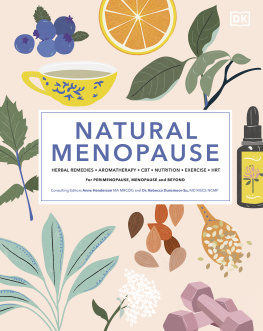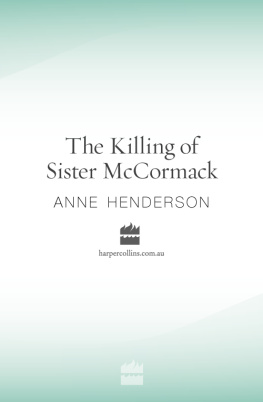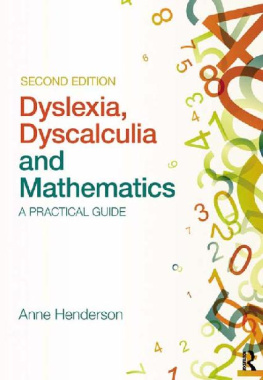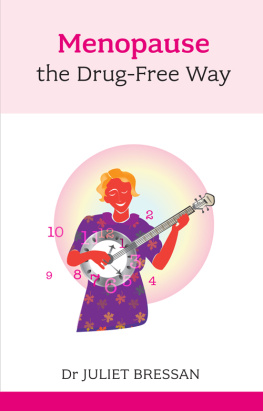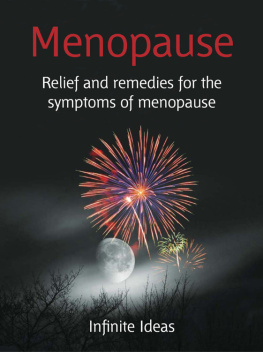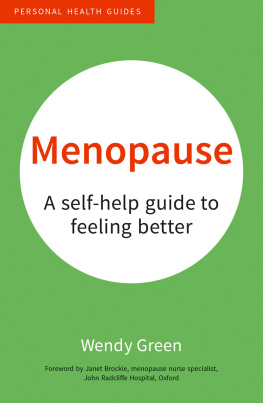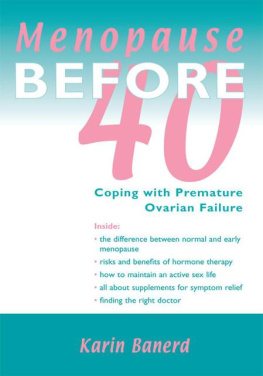Anne Henderson - Natural Menopause
Here you can read online Anne Henderson - Natural Menopause full text of the book (entire story) in english for free. Download pdf and epub, get meaning, cover and reviews about this ebook. publisher: DK Publishing, genre: Home and family. Description of the work, (preface) as well as reviews are available. Best literature library LitArk.com created for fans of good reading and offers a wide selection of genres:
Romance novel
Science fiction
Adventure
Detective
Science
History
Home and family
Prose
Art
Politics
Computer
Non-fiction
Religion
Business
Children
Humor
Choose a favorite category and find really read worthwhile books. Enjoy immersion in the world of imagination, feel the emotions of the characters or learn something new for yourself, make an fascinating discovery.
- Book:Natural Menopause
- Author:
- Publisher:DK Publishing
- Genre:
- Rating:5 / 5
- Favourites:Add to favourites
- Your mark:
- 100
- 1
- 2
- 3
- 4
- 5
Natural Menopause: summary, description and annotation
We offer to read an annotation, description, summary or preface (depends on what the author of the book "Natural Menopause" wrote himself). If you haven't found the necessary information about the book — write in the comments, we will try to find it.
Natural Menopause — read online for free the complete book (whole text) full work
Below is the text of the book, divided by pages. System saving the place of the last page read, allows you to conveniently read the book "Natural Menopause" online for free, without having to search again every time where you left off. Put a bookmark, and you can go to the page where you finished reading at any time.
Font size:
Interval:
Bookmark:

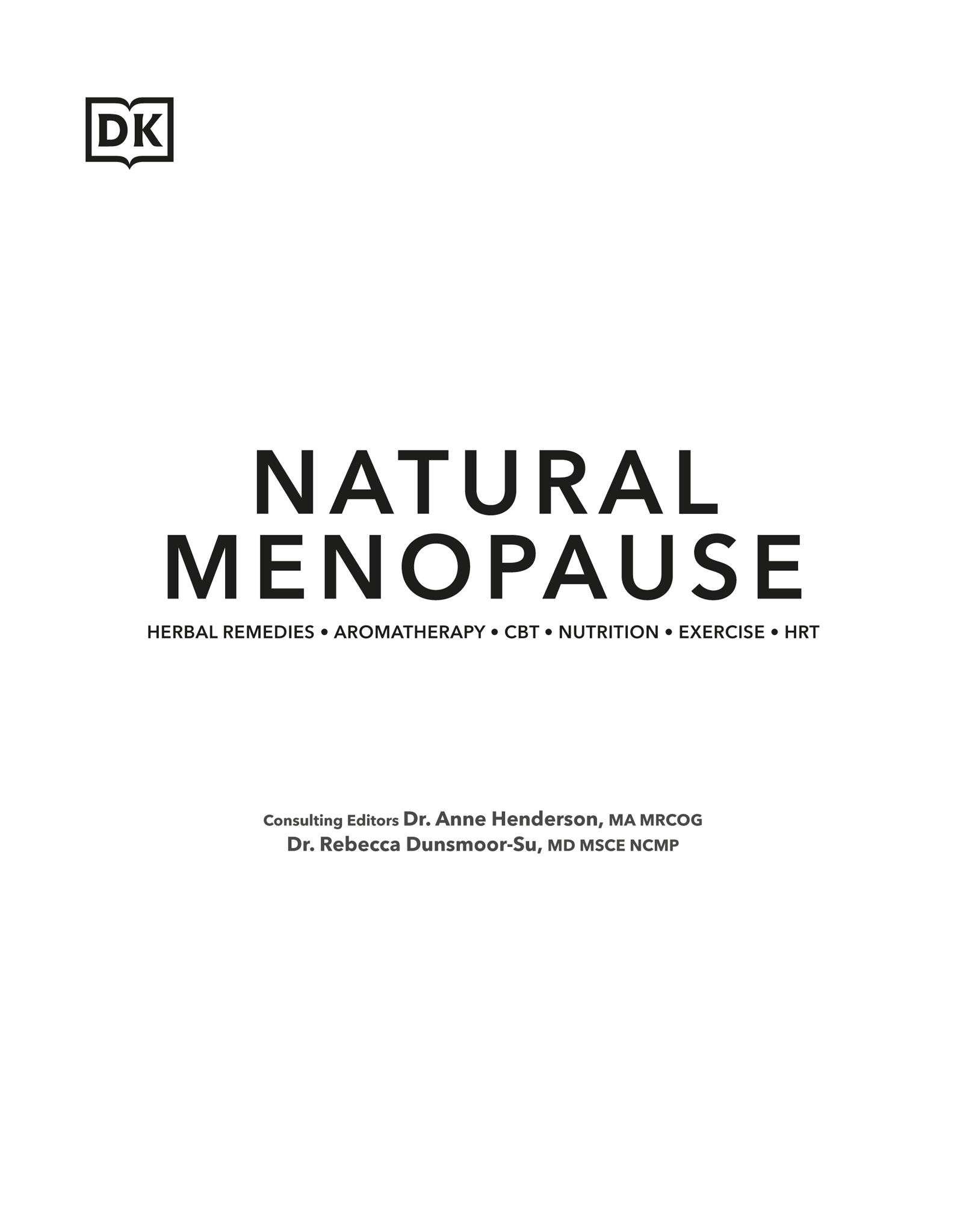
CONTENTS
Preferred application settings
For the best reading experience, the following application settings are recommended:
- Orientation: Portrait
- Color theme: White background
- Scrolling view: [OFF]
- Text alignment: Auto-justification [OFF](if the eBook reader has this feature)
- Auto-hyphenation: [OFF](if the eBook reader has this feature)
- Font style: Publisher default setting [ON](if the eBook reader has this feature)
g
FOREWORD
Why a guide to natural menopause? As an OBGYN and menopause practitioner my constant refrain to my patients is, this is a natural and normal process. I think reframing menopause as a normal and manageable transition can be beneficial for women.
It might seem unusual for a Western medicine practitioner to be involved in a book that primarily focuses on nonmedical interventions and herbal remedies. We have lost our focus in Western medicine, in my opinion, and instead of generating and supporting wellness, we often find ourselves playing catchup and treating illness. Dont get me wrong, I have a strong belief in science and the Western medical tradition. I am an epidemiologist by training and am most influenced by data and statistics. But sometimes we need to step back and look at the whole woman.
Herbal remedies have been studied in menopause with mixed results. Often this is because we are applying Western scientific theory where it may not totally relate. In the US we do not have the same certifications and regulation of herbal medicine as in other parts of the world, or herbal medicine practitioners. Herbs are natural; however, that is not necessarily synonymous with safe. Using a reference such as this, written by an expert in medical herbalism, is key if you are going to explore using herbal medicine.
In this book, traditional herbal remedies and lifestyle interventions predominate. This is intentional. Hormone therapy has a role for some women and can be a huge benefit to those who need it. It is also a safe and beneficial intervention when used properly. But the cornerstone of menopause management is living a healthy lifestyle. The key parts of this book, in my mind, are the nutrition, exercise, and mental wellness chapters, which present the ideal interventions a woman can take. This is the foundation of a long and healthy life after menopause and can moderate some of the age-related diseases that can impact quality of life.
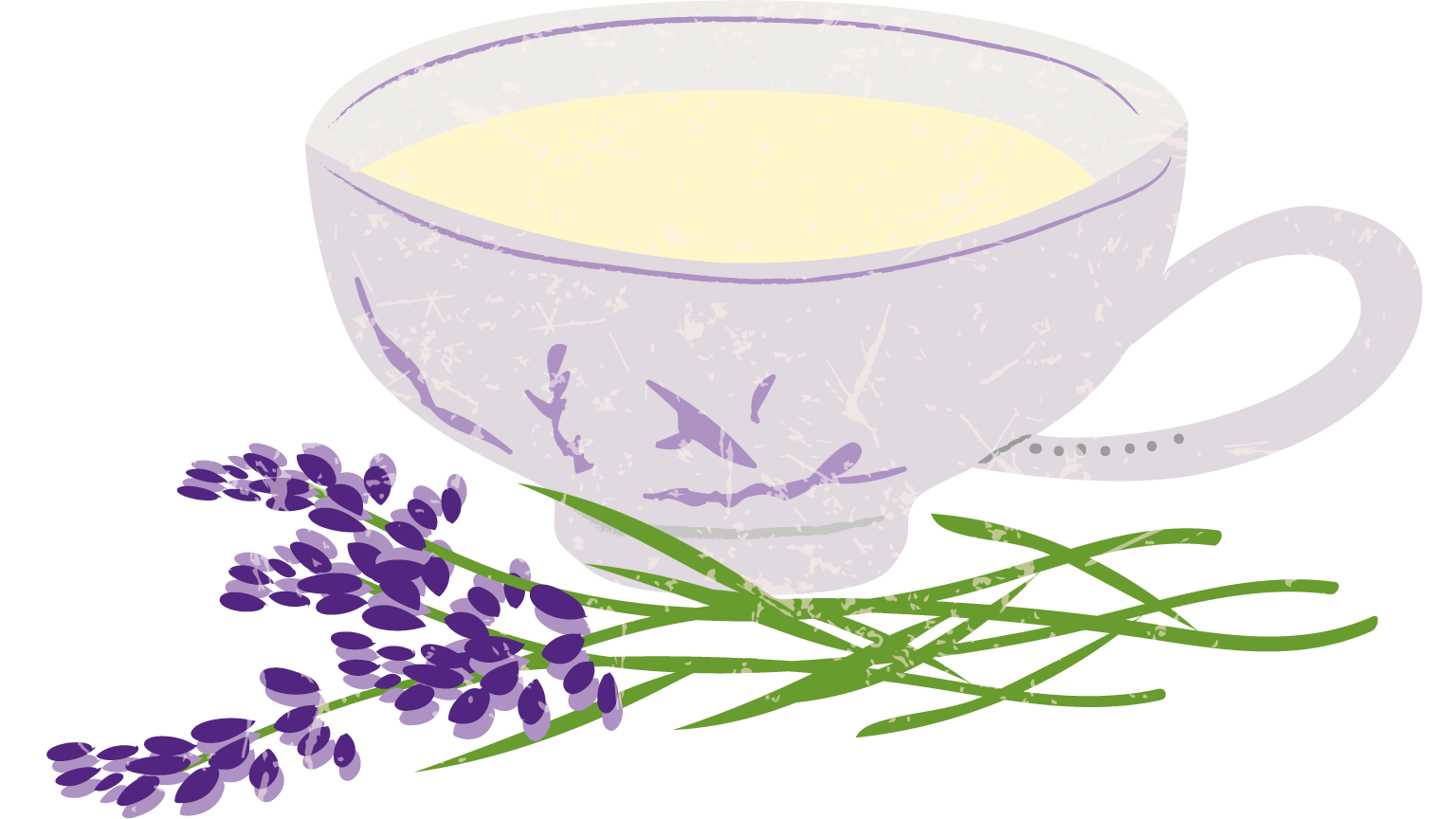
Do not feel that if you cannot make all of the changes, you shouldnt make any. Pick one area to focus on and try to improve your behavior there. The most important advice I have here is to give yourself grace. You will not be perfect, but you can feel better if you improve your diet or exercise even 20 percent. And once you see some benefit, that will be inspiration to make more healthy changes.
This book presents you with the information you need. Approaching menopause from a place of knowledge and strength rather than fear and hype is key. Every woman needs a different cocktail of remedies, solutions, patience, and hope going into and through this process and transition. On the other side of the divide is a confidence and strength that is well worth it.
As women, we need more tools like this to help us live our best menopause in the second half of life.
Rebecca Dunsmoor-Su
MD MSCE NCMP
g
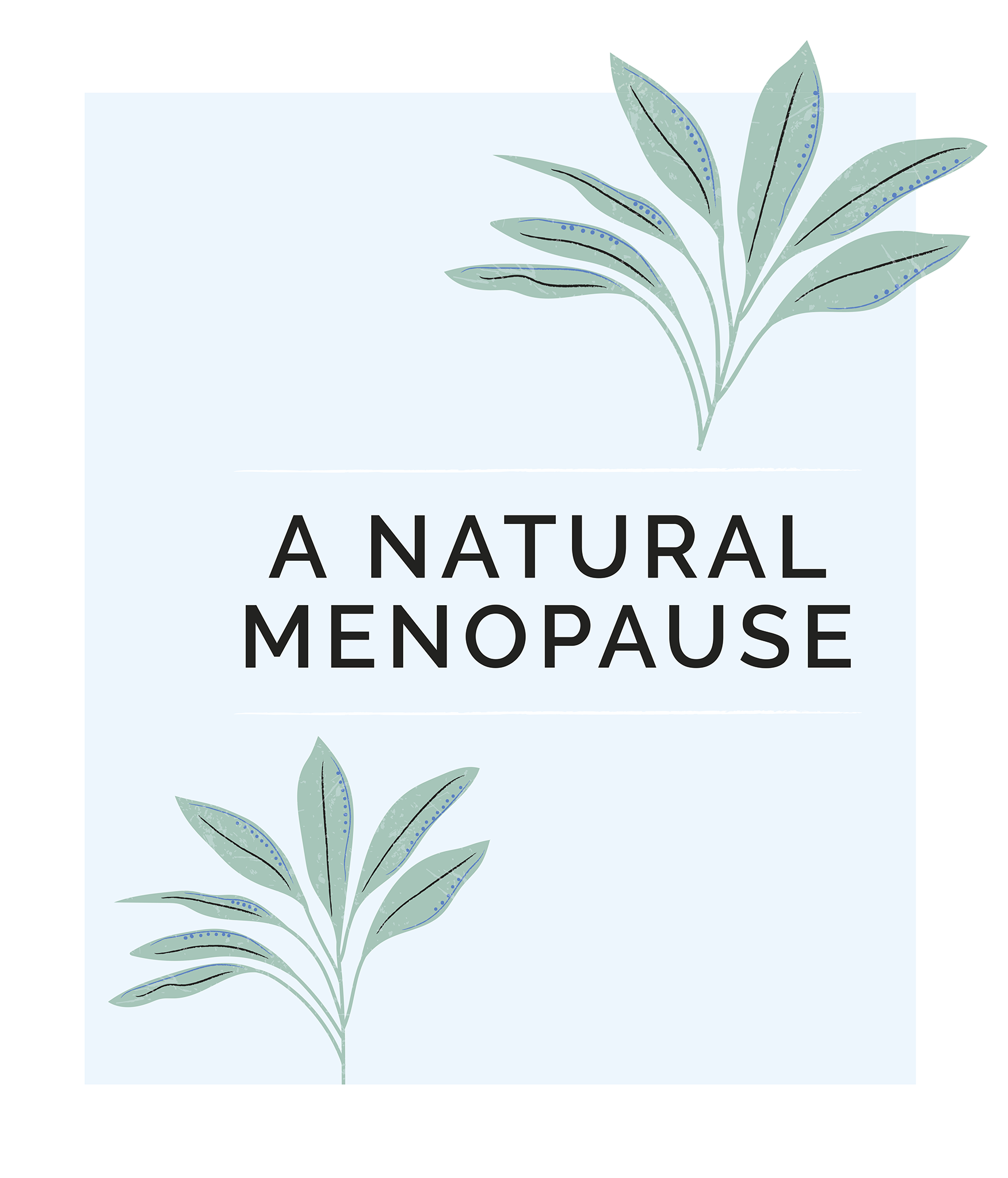
g
INTRODUCTION
Menopause is a time of great change, not only biologically but also physically and emotionally. Understanding what is happening to your body, and why, is key to introducing changes to your lifestyle and health to make the transition through menopause to the next stage of your life as smooth as possible.
Menopause is the ideal time to focus on you, and the benefits that natural remedies, exercise, mental wellness practices, nutrition, or HRT can bring to your physical, mental, and spiritual well-being.
All women will go through menopause at some point, which is defined as the end of monthly cycles from the Greek for pause and cycle. At menopause the ovarian production of estrogen and progesterone falls significantly, as does testosterone, but to a lesser extent. It is generally accepted that you have gone through menopause when you have not had a period for a year, although this is not a definitive diagnosis. In reality, the physiology is far more complex. Your body undergoes a wide range of changes over many yearsa decade or morebefore you become post-menopausal.
The average age for a woman to go through menopause is 51.7 years, but perimenopause can start more than a decade earlier. Many women therefore begin to experience menopausal symptoms in their early to mid-40s, but fail to realize these changes are the start of menopause because they incorrectly believe they are too young or their symptoms are due to other issues.
Some women will also go through a premature menopause before the age of 40, which may be due to genetic factors, surgery to remove the ovaries, or other treatments affecting .
WHY MENOPAUSE HAPPENS
Each woman is born with a finite number of follicles, or egg sacs, in the ovaries in which mature eggs will develop. Although you are born with around 300,000 primordial follicles, other than the ones that result in ovulation, the remainder will naturally atrophy over the course of your life.
From puberty, the ovaries release an egg each month as part of your menstrual cycle, as well as producing key hormones such as estrogen, progesterone, and testosterone. No new follicles develop after birth, so by your 40s the number of eggs has declined significantly. At this point, the ovaries become more resistant to the hormones released from the pituitary gland, specifically follicle stimulating hormone (FSH) and luteinizing hormone (LH), and the monthly pattern of ovulation gradually declines along with the levels of key hormones.
The menopause transition can extend over many years, and although it varies from woman to woman, it can be broken down into three main stages: perimenopause, menopause, and post-menopause.
PERIMENOPAUSE
Perimenopause is the time leading up to menopause when your body, ovarian function, and hormone levels undergo seismic shifts. You may find that your periods alter, becoming more frequent and heavier, or more irregular and lighter. Because every woman is different, her menstrual cycle will change in a variable and unpredictable way, although genetic influence is a key factor.
You may not realize that you are perimenopausal and that your hormone levels are declining until you experience menopausal symptoms, usually vasomotor issues (hot flashes and night sweats) and insomnia initially. Many women are also aware of worsening PMS during the lead-up to menopause, and psychological problems such as heightened anxiety. See also .
Font size:
Interval:
Bookmark:
Similar books «Natural Menopause»
Look at similar books to Natural Menopause. We have selected literature similar in name and meaning in the hope of providing readers with more options to find new, interesting, not yet read works.
Discussion, reviews of the book Natural Menopause and just readers' own opinions. Leave your comments, write what you think about the work, its meaning or the main characters. Specify what exactly you liked and what you didn't like, and why you think so.

